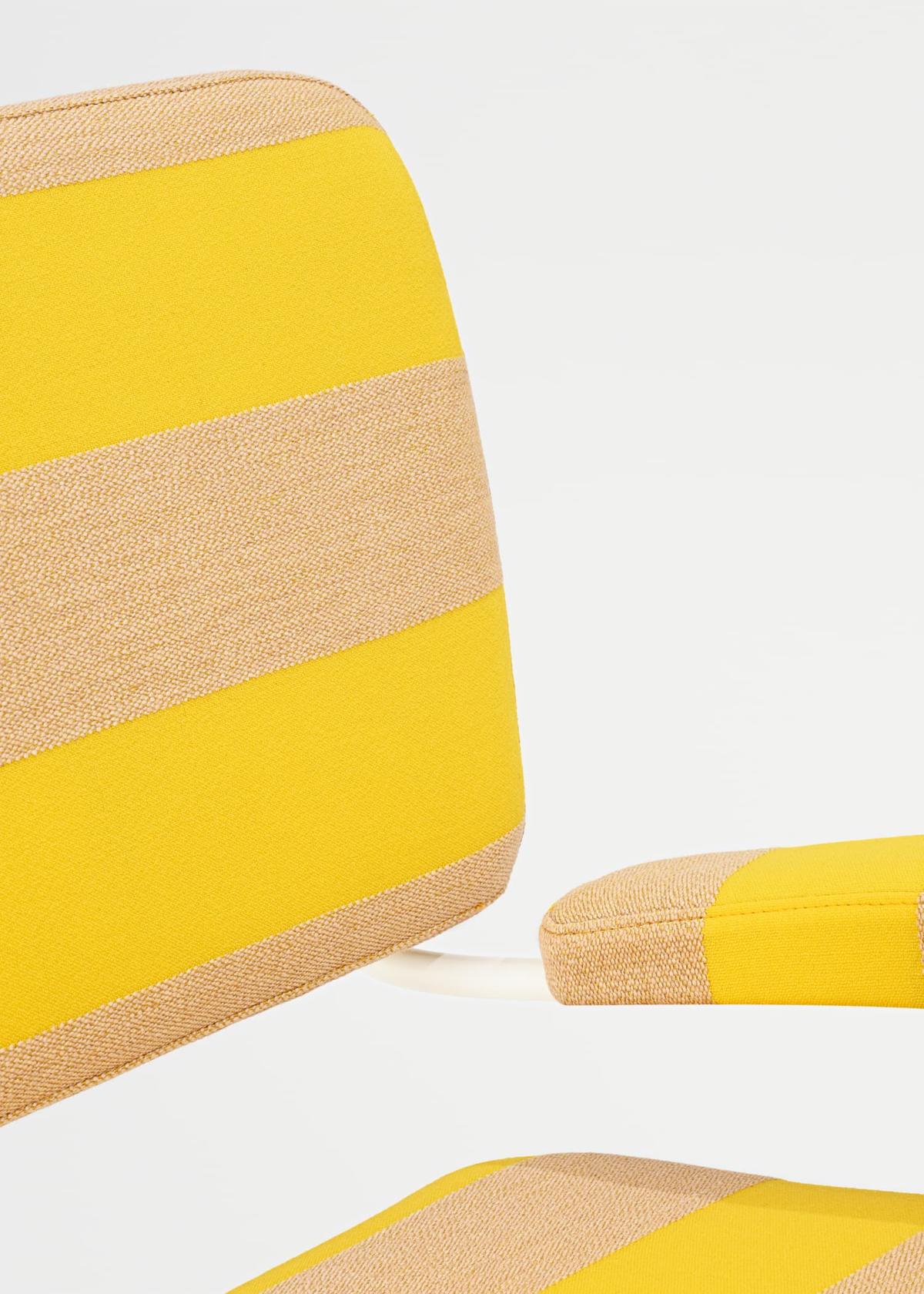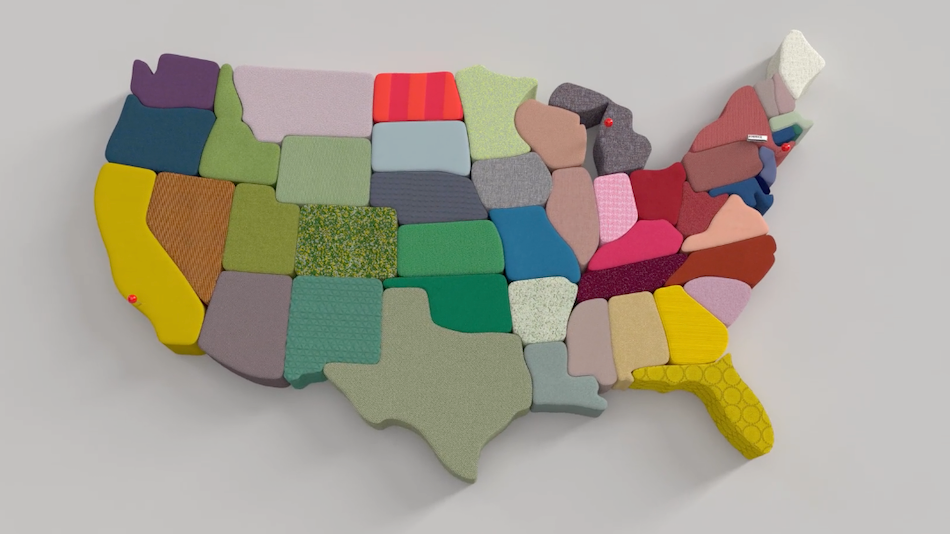Kvadrat is going solo. Ending an 18-year distribution partnership with Maharam, the Danish fabric giant is spinning up its own operations across the United States in 2021. Its plans suggest that the company is intent on growing its stateside business with a design-forward approach: Kvadrat has hired two buzzy industrial designers (Erwan Bouroullec and Jonathan Olivares) to create statement showrooms in New York and Los Angeles.
“This is a natural evolution,” Kvadrat CEO Anders Byriel tells Business of Home. “We have a lot of respect for Maharam and this has been a journey, developing together. [Now] we’re in a position where we have to be closer to the US market.”

The move follows a period of growth for Kvadrat. Byriel says the company has tripled its business in the last decade and made serious incursions into the Asian commercial interior design market. Kvadrat also has contracts with several blue-chip U.S. corporations, and part of the appeal of going solo in America is to establish direct local relationships.
Another factor behind the split with Maharam is maintaining Kvadrat as what Byriel calls “a neutral player.” Maharam was acquired in 2013 by Herman Miller, and while the company will continue to work with the Michigan-based contract furniture giant, it will now also be able to pursue independent relationships with other furniture manufacturers, free of entanglement.
The move comes with its challenges. Byriel says that customer service expectations in the U.S. are among the highest in the world, which necessitates entering the market with a strong presence right off the bat—in addition to the New York and Los Angeles locations, the company will have a showroom in Grand Rapids, Michigan and a network of independent reps. (Some of the company’s U.S. staff will come from Donghia—the now-defunct multiline had represented Sahco, the German textile brand that Kvadrat acquired in 2018.)
Then, of course, there’s COVID. Most of Kvadrat’s business is in the commercial design world, a sector that has been hit particularly hard by the pandemic. Byriel says the company’s commercial sales are only down 15 or 16 percent as a result of the pandemic—not a terrible figure, given how much the contract market has suffered overall. He’s also seen encouraging growth on the residential side, driven by collections from Belgian fashion designer Raf Simons and through Sahco.
Indeed, the residential sector of Kvadrat’s business is one that Byriel is keen to grow, especially in the U.S. And with a market increasingly obsessed with performance fabrics, bringing commercial expertise to the table is no small advantage. The vast majority of Kvadrat’s U.S. sales are woolens, and Byriel expects that the company’s ability to coax performance-level quality of natural fibers will hit the sweet spot for a customer base interested in both natural materials and contract-grade durability.
“We’re getting quite strong on the residential offering,” says Byriel. “We just have to get deeper into the American market and keep having conversations with our clients and keep evolving. We’re extremely entrepreneurial and we love to develop new businesses and collaborate and find what’s next.”
Homepage photo: Kvadrat textiles on every state | Courtesy of Kvadrat





























